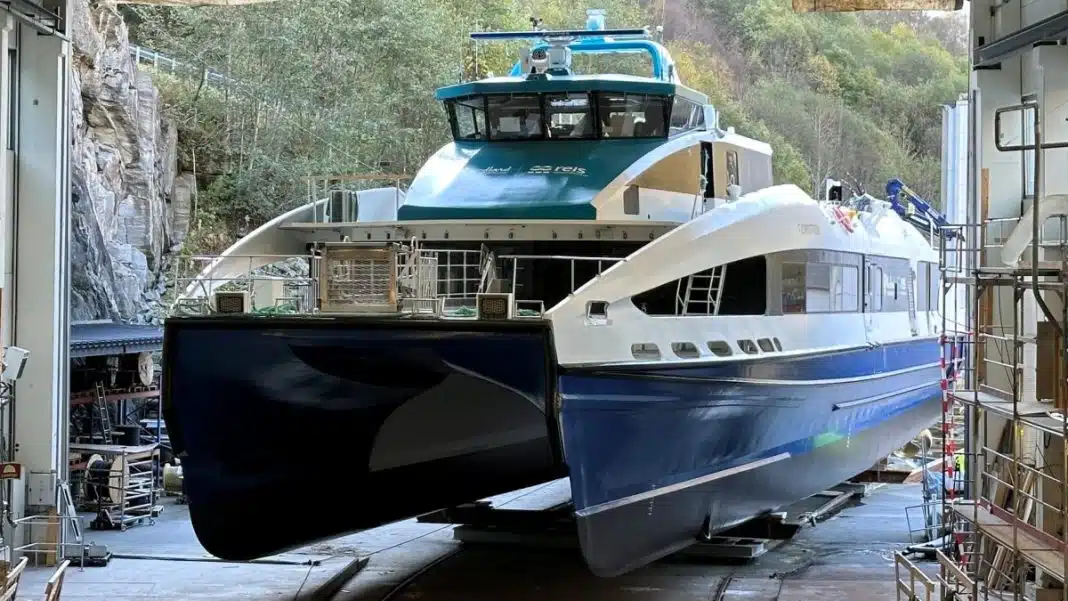At Brødrene Aa’s shipyard in Hyen, two carbon fiber high-speed vessels are under construction, and the first vessel was recently launched and set afloat. These cutting-edge vessels will operate on 70% electric power, designed to navigate the demanding seas off Bodø.

“These catamarans can run for two hours at 28 knots, or cover 60 nautical miles, solely on battery power,” explains Kjetil Lote, an engineer at Brødrene Aa.
“They are designed to maintain a speed of 30 knots in 2,5-meter (Hs) waves and can still cruise at 18 knots when the waves reach four meters in height.”
Lote is integral to the team overseeing the new boats’ construction, from the drawing board to the production hall.
“Striking the right balance between battery weight, passenger and cargo capacity, speed, and seaworthiness is a challenging endeavor,” he says.
Redefining high-speed vessels
The state-of-the-art vessels will measure 40 meters in length and 10,3 meters in width, accommodating up to 130 passengers. While primarily intended for passenger transport in Væran and Gildeskål, they’re also equipped to carry diverse cargo, from fish to bicycles and kayaks.
“These combi-catamarans come with a specialized cold room and loading cranes for fish transport. Their universal design includes three loading bays and deck seating, allowing passengers to relish the scenic beauty of the route. We anticipate this feature will be a welcome enhancement for both the captain and passengers,” Lote adds.
Pursuit of perfect balance
Over the past few years, Brødrene Aa has provided both fully electric and MGO vessels. The sea conditions and the specific operational requirements determine the choice of the energy system.
“The advent of new battery technology enables a more sustainable vessel design,” Lote states.
“However, the added weight of the battery occasionally necessitates the use of a hybrid solution, with a diesel engine serving as a range extender. This design choice ensures maritime safety and maintains the weight necessary for high-speed navigation.”
The vessels are being delivered to Norled and are set to be in service for Nordland Fylkeskommune starting in 2024. Their primary routes will include Bodø – Væran and Bodø – Gildeskål.Play












